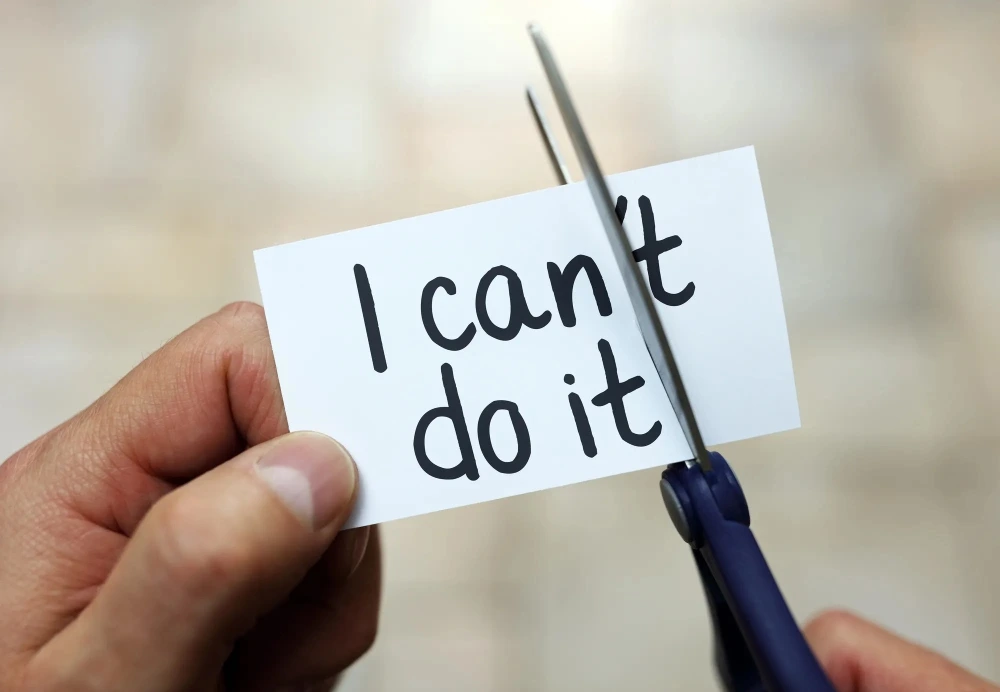Actionable Tips on Self-Esteem and Confidence From A Therapist
Low self-esteem can feel like carrying a heavy backpack filled with self-doubt everywhere you go. It impacts your relationships, career, and overall happiness. The good news? Confidence is not an innate gift; it’s a skill you can develop. With the right tools and mindset, you can transform self-doubt into self-assurance and take steps toward a more fulfilling life. Let’s explore the signs of low self-esteem and practical strategies to build confidence.
Individual Counseling can be a great place to get support and guidance to overcome these feelings.
Recognizing the Signs of Low Self-Esteem
Before you can work on improving confidence, it’s essential to understand how low self-esteem manifests. Here are four common signs:
- Negative Self-Talk
Do you often criticize yourself, even for small mistakes? Persistent negative self-talk can erode your self-image and make you doubt your abilities. - Fear of Failure
Avoiding challenges or opportunities because of fear can be a sign of low self-esteem. You may worry about making mistakes or not being good enough. - Difficulty Setting Boundaries
Do you find yourself saying yes to things you’d rather not do? This can lead to feeling undervalued or taken advantage of. - Trouble Accepting Compliments
Brushing off compliments with, “Oh, it was nothing,” or feeling uncomfortable when praised may indicate an undervalued sense of self.
Recognizing these patterns is the first step toward building self-awareness—a key ingredient in growing your confidence.
Why Confidence Matters
Confidence is the foundation of a fulfilling life. It allows you to try new things, recover from setbacks, and trust in your ability to succeed. When low self-esteem dominates, it’s like driving with the parking brake on—holding you back from reaching your full potential.
I often tell clients that confidence isn’t about being flawless; it’s about believing in your ability to handle challenges. Imagine this: You wouldn’t judge a house by one chipped brick—why judge yourself by one mistake? Confidence grows when we celebrate our strengths and small wins, even on the toughest days.
Some of the setbacks individuals face with Confidence and Self Esteem can be related to traumas in their lives. Trauma Counseling is a place where you can address present and past traumas and learn to resolve them to live a more free and fulfilling life.
If you feel that you need help, reach out to Talking Circles- we are trained to help you through your challenges to bring you resilience and reconnect with your own strength.
Therapist-Approved Tips to Build Self-Confidence
1. Challenge Negative Self-Talk
Your inner dialogue shapes how you see yourself. Replace negative thoughts with supportive affirmations. For example, swap, “I always mess up,” with, “I’m learning, and it’s okay to make mistakes.”
- Example Affirmations:
- “I’m capable and resilient.”
- “I deserve kindness and respect.”
- “Mistakes help me grow.”
2. Celebrate Small Wins
Confidence builds one step at a time. Acknowledge small achievements, whether it’s completing a project, exercising, or setting aside time for self-care.
- Example: If your goal is regular exercise, start with 10 minutes a day. Each small success reinforces your ability to stick with it.
3. Create a Positive Environment
Surround yourself with people who uplift you and environments that promote growth. Negative influences can erode confidence over time.
- Action Step: Make a list of people or activities that energize you and prioritize them in your daily life.
4. Practice Mindfulness
Mindfulness helps you focus on the present instead of worrying about the past or future. Breathing exercises and guided meditation can quiet the inner critic and ground you in the now.
- Quick Tip: Spend five minutes each morning focusing on deep, even breaths to start the day with clarity.
5. Step Outside Your Comfort Zone
Growth happens when you face challenges. Start with small actions that push your boundaries.
- Example: If public speaking intimidates you, begin by sharing one idea in a group discussion. Confidence grows with each new attempt.
6. Keep a Confidence Journal
Writing helps you track progress and reflect on your accomplishments.
- Prompt Idea: Each evening, write down one thing you’re proud of and one thing you’d like to work on.
7. Practice Gratitude
Gratitude shifts your focus from what you lack to what you have. Recognizing your strengths and achievements boosts self-esteem over time.
- Quick Exercise: Each morning, list three things you’re grateful for. This sets a positive tone for the day.
8. Visualize Success
Visualizing positive outcomes helps you build confidence and motivation. Imagine yourself successfully completing tasks or handling challenges with ease.
- Example: Before a meeting or presentation, take a few moments to picture yourself speaking confidently and receiving positive feedback.
Expanding Your Journey: The Role of Therapy
While self-help strategies are impactful, therapy provides a deeper understanding of low self-esteem’s root causes. A therapist helps you uncover patterns, heal from past experiences, and develop personalized strategies for lasting change.
One client once told me, “I didn’t realize how much I was holding myself back until we unpacked it in therapy.” Seeking professional support is an act of courage and self-care that can transform your life.
FAQs About Confidence and Self-Esteem
Can confidence-building exercises help with social anxiety?
Yes, small steps like practicing social interactions can gradually reduce anxiety and improve confidence.
How does gratitude impact self-esteem?
Focusing on gratitude shifts your perspective, helping you appreciate strengths and build positive self-perception.
Are confidence and self-esteem the same?
Confidence is belief in your abilities, while self-esteem is belief in your worth. Both are interconnected and essential.
How can therapy support confidence building?
Therapy provides tailored strategies to overcome self-doubt, identify strengths, and foster a healthier self-image.
Can childhood experiences shape self-esteem?
Yes, early experiences often influence how we view ourselves as adults. Therapy can help unpack and address these patterns.
How does self-esteem impact professional growth?
Healthy self-esteem encourages you to take risks, advocate for yourself, and handle workplace challenges confidently.
Q7: What are quick ways to boost confidence in stressful moments?
Take deep breaths, use positive affirmations, and remind yourself of past successes to regain composure quickly.
Takeaway
Building confidence is a journey, not a destination. By identifying patterns of low self-esteem and implementing therapist-approved tips, you can take meaningful steps toward a more confident and fulfilling life. Whether through self-help strategies or professional therapy, the path to self-assurance is within reach.
Links and Resources
- Why Do I Feel Like a Failure?
https://mooremomentum.com/blog/why-do-i-feel-like-a-failure/ - Self-Esteem
https://www.healthdirect.gov.au/self-esteem - Low Self-Esteem: Causes, Symptoms, and Treatment
https://www.healthline.com/health/low-self-esteem - What is Self-Esteem?
https://www.verywellmind.com/what-is-self-esteem-2795868
Causes of Low Self-Esteem
https://newperspectivescs.com/causes-of-low-self-esteem/




